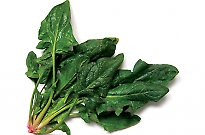
Health benefits of caffeine

5 reasons to drink coffee
It’s the daily drug of choice for around 80 per cent of us worldwide, and it has a bad reputation among many. But has caffeine been unfairly demonised? Alex Gazzola reports on the pros and cons of this popular chemical.
Caffeine attracts its fair share of controversy and extreme views. Detox gurus and many nutritionists advise us to strictly eliminate coffee, tea and chocolate specifically because of their caffeine content.
And, indeed, a raised intake of this pharmacologically active compound can have negative effects on the body – such as mood swings, sleep interruption and migraine – and withdrawal symptoms can include anxiety and irritability. While we also know caffeine to be a mild gut irritant and contribute towards pre-menstrual fluid retention, some nevertheless believe the case against caffeine to be exaggerated.
“Caffeine gets hammered a lot by many nutritionists, but I’ve looked at the evidence about caffeine being detrimental to health, and it seems that problems only arise at high doses,” says nutritionist and researcher Dr Carrie Ruxton, who points out that tea and coffee can contain high levels of antioxidants, which may help protect against forms of cancer.
“Telling people to avoid caffeine has become a mantra among certain healthy eating gurus, but being told to eliminate caffeine, sugar, dairy, wheat and yeast doesn’t leave much option to those who want to eat well, and yet enjoy their food. I feel it’s time to rehabilitate caffeine – and stop instructing consumers to avoid it.”
Indeed, in modest quantities, caffeine can provide the kind of benefits you’d least expect. Here are some reasons why it may not be a wise choice to completely eliminate it from your diet.
1. It fights cellulite
Yes, there’s a very good reason why the better cellulite creams contain caffeine. “When applied topically in an alcohol-based formula, caffeine penetrates the skin and stimulates the fat cells to liberate their fatty acids, and so reducing cellulite,” says cosmetic medicine practitioner, Dr Elisabeth Dancey.
“Drinking tea and coffee can also have a positive effect on cellulite, as up to two cups a day will increase the body’s metabolic rate. But caffeine is a double-edged sword where cellulite is concerned. Any more than two cups and you risk damaging the micro-circulation leading to a decreased elimination of toxins, which can result in more cellulite.”
2. It can reduce the risk of asthma attacks
It has been appreciated for over a century that caffeine can help those susceptible to asthma to breathe more easily. French writer Marcel Proust, an asthmatic, wrote how as a child in the late 1800s, caffeine “was prescribed to help me breathe”. Several modern-day studies appear to confirm the long-held suspicion. Drawing from six clinical trials in the subject, researchers involved in a 2007 study in the Cochrane Database of Systematic Reviews found that caffeine helped relax airway muscles and produced improvements in airway function lasting up to four hours. An Italian study of over 70,000 people revealed an inverse association between asthma symptoms and coffee intake, with the risk of an attack falling by 28 per cent in those consuming three or more cups daily.
3. It can help fight pain
You may have often wondered why some of your favourite painkillers contain some caffeine, but the reason is that it seems to boost the medicine’s ability to act. It also appears to improve the absorption of the accompanying painkiller, helping it to act more effectively. Anecdotal reports suggesting that a cup of tea or coffee can help clear up a mild headache have been supported by a few modest studies. Indeed, it is known that vasodilators (chemicals which dilate blood vessels – such as alcohol) can bring on headaches, and that vasoconstrictors (chemicals which constrict blood vessels – such as caffeine) can relieve them. Some have expressed concern that caffeine is added to painkilling medication, but the advantage is that it may lower the dose required to offer relief, and so potentially decrease the likelihood of dependence. Further, in a small study, scientists from the University of Georgia in the US found that drinking coffee was more effective in reducing muscular pain during hard exercise than taking an aspirin.
4. It may protect against liver disease
A study of almost 10,000 volunteers, conducted by the National Institute of Diabetes and Digestive and Kidney Diseases in America, showed that drinking caffeine in tea or coffee may reduce the risk of liver damage in heavy drinkers and in the overweight. Also, another study from Norway suggested that three cups of coffee daily may reduce death rates from cirrhosis of the liver. More recently, a study published in the journal Hepatology in 2010 found that 300 mg of caffeine from coffee daily offered a strong protective effect against liver fibrosis or scarring.
5. It protects the brain against cancer
In a large study published in the American Journal of Clinical Nutrition in 2010, British researchers from Imperial College London found that tea and coffee drinkers were considerably less at risk – over a third less likely – to develop a brain tumour. The research was impressive in that it involved over 400,000 individuals from across Europe, and while some experts speculated that the antioxidants in tea and coffee offered some protection, the researchers also suggested that the caffeine can help mildly restrict blood flow to the brain, hindering the growth of potential tumours.
Author: Alex Gazzola; Photo credit: Thinkstock


